The internationally celebrated OUTshine LGBTQ+ Film Festival Spring Edition is upon us! Running April 17-May 4, 2025, OUTshine is often the launching pad for the best queer cinema has to offer.
Over 40 feature films and docs as well as over 20 shorts, that include premieres from more than 20 countries, will screen in Miami-Dade and Broward counties in Florida for this 43rd edition.
Joe Bilancio, director of OUTshine programming, states, “Now, more than ever, it’s important for us to share the cinematic stories, stars and directors whose creative visions urge us to embrace our differences and foster a sense of unity and belonging.”
OUTshine opens with Daniel Minahan’s stirring and evocative period drama, On Swift Horses, which features two queer love stories involving Jacob Elordi & Diego Calva and Daisy Edgar-Jones & Sasha Calle.
The Centerpiece film is the world premiere of Max Nardari’s Italian comedy, Accidental Friends (Amici Per Caso).
Men’s and Ladies Spotlight Films include Susie Yankou’s Sisters (Canada, 2024), and Felipe Sholl’s Streets of Gloria (Ruas da Gloria) (Brazil, 2024), respectively. And the Latin Spotlight shines a beam on Mexican director Alejandro Andrade Pease’s Fine Young Men (Hombres Integros).
Darren Thornton’s touching Four Mothers closes the festival.
There are many events, panels and retrospectives as well.
Visit outshinefilm.com for tickets and more information.
The Contending managed to sample quite a few of the films (mostly features) and here are some worthy selections.
Once again, pointing out one of the best: Sandbag Dam, which I reviewed for the Berlinale earlier in the year.
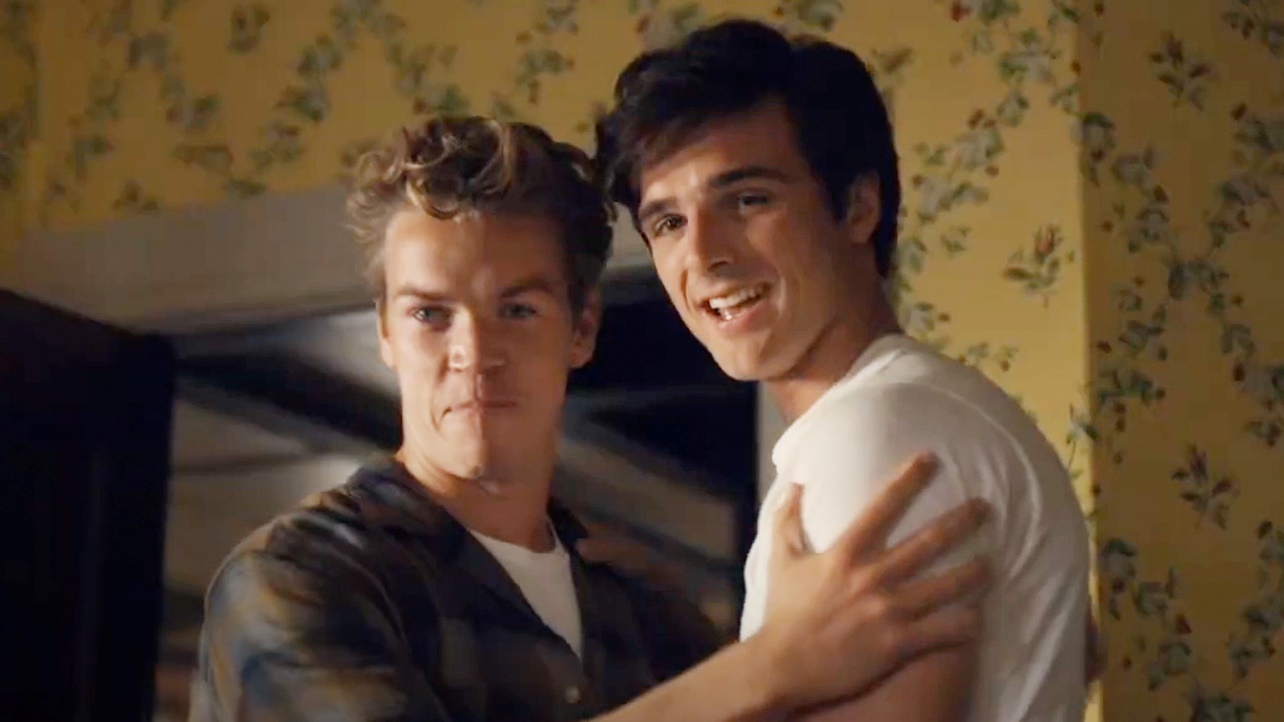
On Swift Horses
Even at two hours, Daniel Minahan’s evocative, slow-burn Noirish drama, On Swift Horses, feels way too short. I have not read the Shannon Pufahl novel the film is based on (adapted by Bryce Kass) but I wanted more time to spend with these fascinating characters so I could be more invested in their respective journeys.
The character-driven narrative is set in the 1950s as closeted (as most gays had to be back then) drifter Julius (Jacob Elordi) arrives at the Kansas farmhouse of his brother Lee (Will Poulter) and his fiance Muriel (Daisy Edgar-Jones) who immediately feels a kinship with Julius. Both long for something more than what their lives are currently offering while Lee is content with simplicity. The film initially tricks us into thinking that a love story is percolating between Julius and Muriel, but those two characters embark on their own same-sex relationships, Julius with Henry (Diego Calva) a Mexican gambler who is chasing his own version of the American Dream and Muriel with Sandra (Sasha Calle), a local Latin woman. But Julius and Muriel stay connected, and in love, but in a platonic way as both forge their own paths.
Elordi is quickly becoming one of our finest leading men. His scenes with Calva are sensual and super sexy. I just wish Minahan gave the couple more screen time. Edgar-Jones delivers a subtle, intense turn.
Luc Montpellier’s lush and tender cinematography is outstanding.
I appreciated how the film depicts the difficulties in expressing gay/lesbian desire during that time period. The only semi-safe havens were gay bars. And poor Julius is constantly getting beaten up and mugged, once nearly killed. I just wanted to spend more time getting to know these beguiling figures.
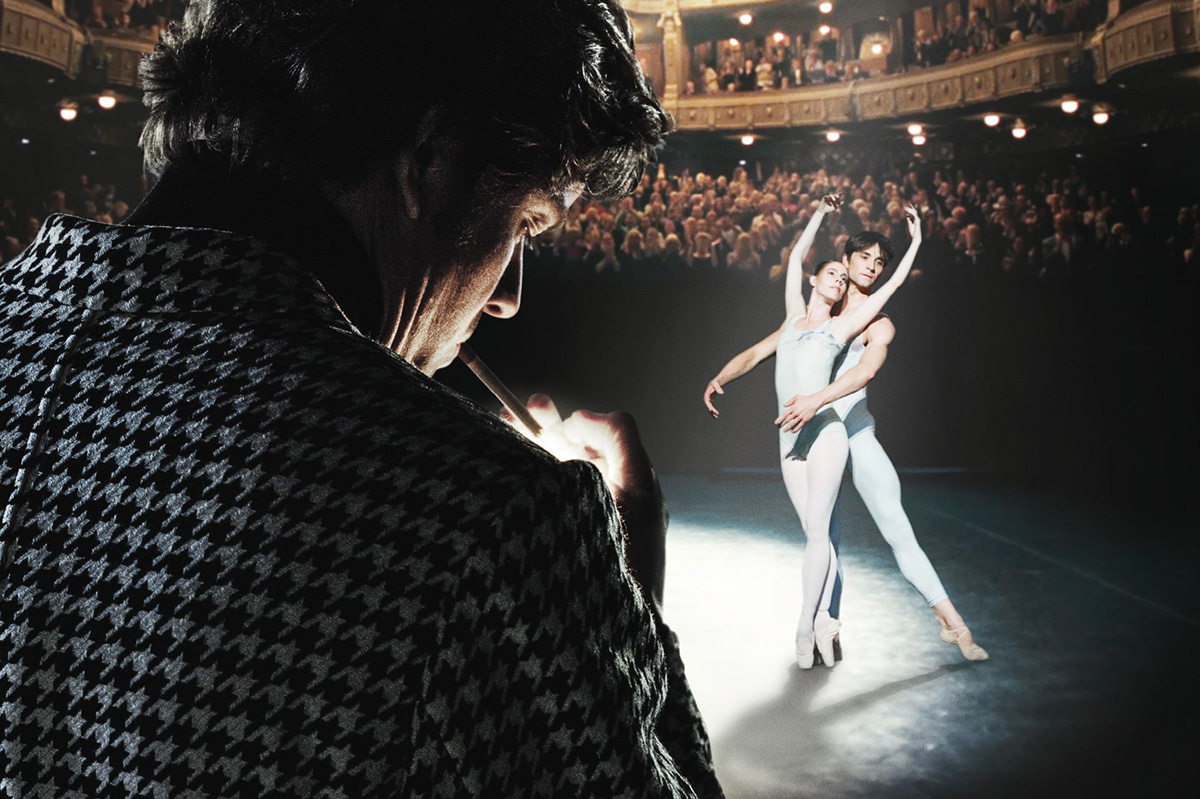
John Cranko
As someone who isn’t super familiar with the ballet milieu, I was not aware of John Cranko or his story. German helmer Joachim A. Lang’s sumptuous and penetrating eponymous feature about the late South African’s achievements in choreography proved a stunning and beguiling sit for me. Here is a fascinating queer story, set in Germany’s post-war era, about a brilliant master of his craft.
Cranko left London where he was prosecuted for his homosexuality and ended up revitalizing Stuttgart’s ballet company where it would take its rightful place among the best ballet troupes in the world.
One of the supreme joys of Lang’s film is that it’s a true wor about the creative process. We watch Cranko labor to tap into his genius mind where original ideas are formed and we then go through the rehearsal process to the final work as it unfolds onstage for audiences (and critics) to then judge. This should be required viewing for ALL filmmakers attempting biopic of artists in any field.
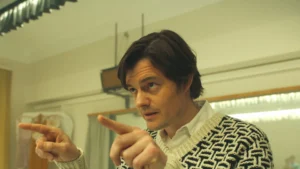
Lang smartly narrows the narrative to the years Cranko spent in Germany, until his untimely death in 1973 at the age of 45. The only place the writer-director falters slightly is in the depiction of Cranko’s personal life. Too many lovers come and go before we are able to get any idea of who they were. And maybe that’s one of the points being made but Cranko seemed to truly fall for a young man, Alexander (handsome Gerrit Klein), but he’s given so little screen time we never get a clue as to what their relationship was based on.
His neglected onscreen personal life notwithstanding, John Cranko works on all other levels and makes some timely comments (given our social media world where everyone has an opinion) on just how painful negative criticism can be and how no one is immune to feeling the sting. The movie also has some interesting observations about the German refusing art that criticized the Nazi regime, even in the 1970s.
And the key reason the film leaps into the stratosphere is the truly remarkable central performance by Sam Reilly. The actor splashed in Anton Corbijn critically-acclaimed film, Control, in 2007, and has done excellent, if intermittent, work since. Here he navigates the complexities of an artist with a healthy ego and creative drive whose self-esteem isn’t as sturdy as one would think. He’s often loving to his dancers yet sometimes strangely mean. It’s a wonderful embodiment of a man who achieves great success in his professional life, while unable to sustain a love relathionship. I hope John Cranko snags a major release and awards push because Reilly’s work is more than worth consideration.
The ensemble of terrific dancers/thespians are led by a deeply affecting Elisa Badenes as Brazilian ballerina Marcia Haydee, who Cranko fought for. And boy did it pay off!
John Cranko is, most definitely an OUTshine highlight!

Accidental Friends (Amici Per Caso)
Gay-themed Italian comedies seem to be in vogue lately. The last few years have given us Alessandro Guida & Matteo Pilati’s terrific Mascarpone (2021) and the so-so sequel, Mascarpone: The Rainbow Cake (2024), Alessandro Genovesi’s entertaining My Big Gay Italian Wedding (2018) as well as The Goddess of Fortune (2019) directed by one of the very few Out Italian filmmakers consistently making films with LGBTQ themes, Ferzan Özpetek. Gay seems okay—as long as it’s funny and doesn’t get too intimate.
Add to this list Max Nardini’s sweet and enchanting Accidental Friends (Amici Per Caso) which examines what happens when two suddenly single men, one gay and one straight, end up living together? Omero (Filippo Tirabassi) is a cultured young gay man who doesn’t believe in marriage. Pietro (Filippo Contri) is a sexy soccer fan who leans homophobic. It’s an odd-couple match up that proves hilarious and poignant, if safe and sanitized, the norm for Italian Queer cinema.
Despite its predictable cautiousness, Accidental Friends is a treat thanks to some wonderful performances starting with Contri who has killer comic chops. His Pietro is a wacky mess. Tirabassi nicely plays “straight” gay man. And Rocco Fasano has some wonderful moments as Omero’s jilted beau.
Now, if my people would just break through their own repression and give us something bold and daring!
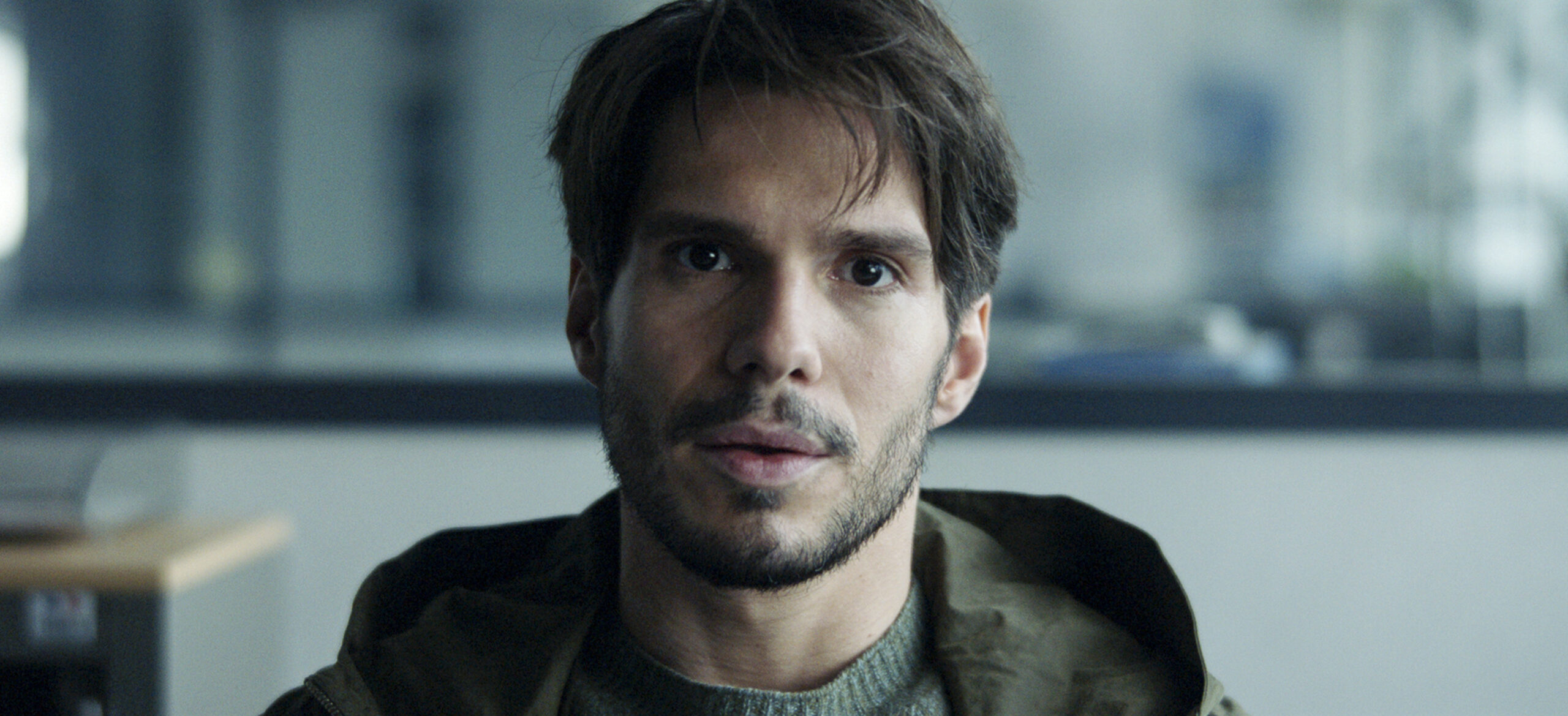
The Good Teacher
Teddy Lussi-Modeste’s third feature, The Good Teacher, explores some timely and perspicacious themes including just how easy it is to soil a reputation and destroy a life in today’s fearful and careful climate.
Julien (an excellent François Civil) is a dedicated lit teacher who finds his world shattering when a female student comes forward to complain harassment. The girl’s hotheaded brother begins to threaten him. The administration, led by a wishy/washy principal, is tentative in their response. And Julien’s fellow teachers become suspicious of him. The laughable irony is that Julien is gay and in a committed relationship (which now teeters on the brink of collapse), but he fails to disclose this important piece of info, for varying reasons. That truth is discovered and actually makes his life even worse.
I was truly taken with this film and it’s Crucible-esque exploration of skewed truths, bruised egos, confused teens and spineless and ineffectual leaders. But the ending is such a disappointment. I get the desire for ambiguity but to ensnarl us in such a nerve-racking, engrossing narrative and then leave us without any kind of payoff is just cruel and angering.
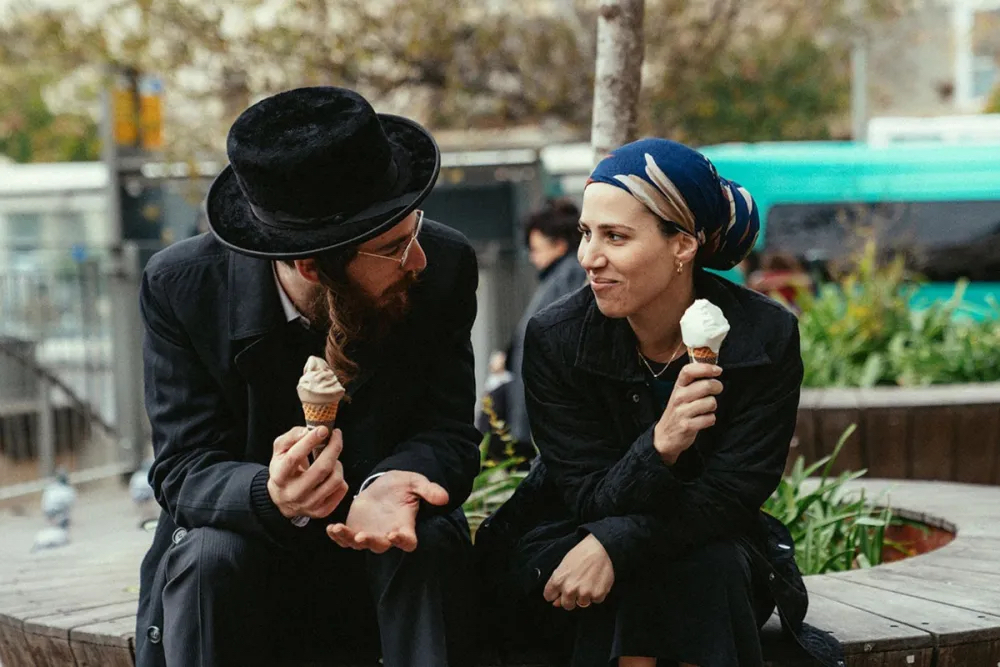
Pink Lady
Nor Bergman’s Pink Lady provides a sad, poignant look at an ultra-Orthodox Jewish couple, living in Jerusalem, and what happens when the wife, Bati (Nur Fibak), discovers that her husband, Lazer (Uri Blufarb), is attracted to men. Sensitively written by Mindi Ehrlich, the film’s central focus is how this bombshell bit of news affects Bati, although we also sympathize with Lazer, especially when he’s the target of a trio of ruthless Orthodox homophobes who resort to blackmail and violence. The film never judges the strict beliefs of the community but wonders how it’s possible to be what god made you in a narrow-view-world that sees it as an abomination.
Fibak anchors the film was a complex portrait of a woman desperately trying to understand her husband and her place in the marriage.
Bergman also peppers the film with a few comic scenes involving the mothers of Bati and Lazer, forcing their involvement into the drama as well as Bati developing an unlikely friendship with a non-Orthodox woman, Natalie (a terrific Gal Malka) who opens up her eyes to new possibilities.
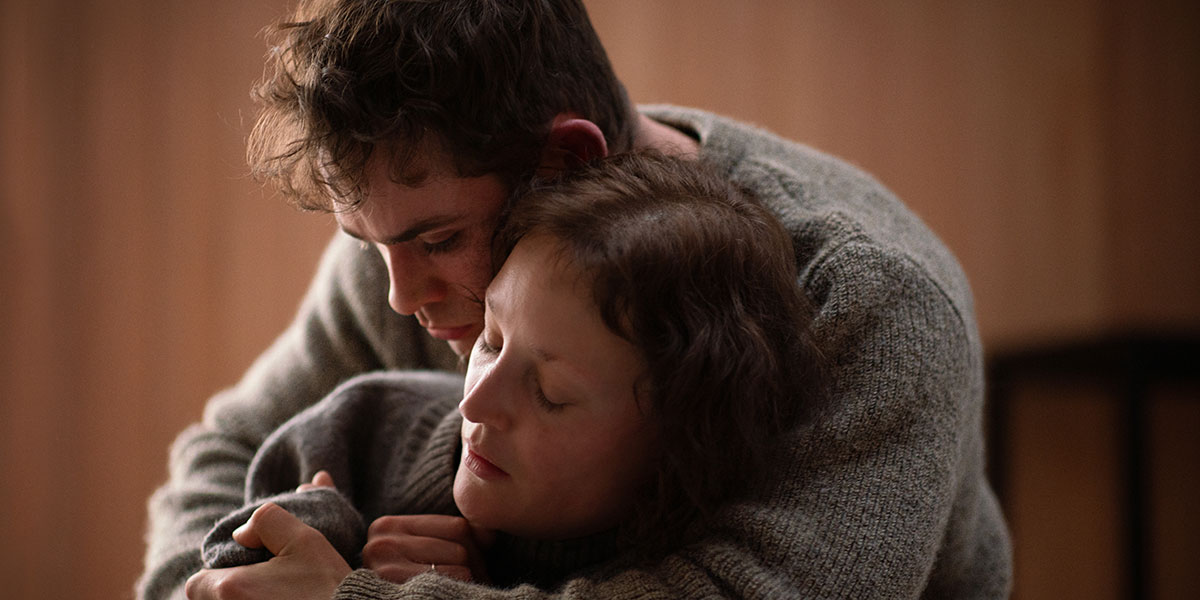
Went Up the Hill
New Zealand born helmer Samuel Van Grinsven creates a discomfiting psychological thriller with Went Up a Hill, a spooky enough exploration of the grieving process as well as an odd dive into parental abuse. Hot as fuck Dacre Montgomery (Stranger Things) and sexy Vicky Krieps (The Phantom Thread) play the estranged son and widow, Jack and Jill, of a deceased artist who took her own life Virginia Woolf style (walking into a body of water with rocks in her pockets). Jack is a young gay man with relationship issues haunted by his mother’s giving him away when he was a toddler. Jill is so bereft with grief she sleeps in the same room as her wife, Elizabeth’s, coffin. Both characters are soon possessed by the ghost of Elizabeth who forces them to do some kinky shit.
Went Up The Hill is supernatural weirdness personified and never really allows for a satisfying conclusion, but the two leads keep us enthralled throughout.
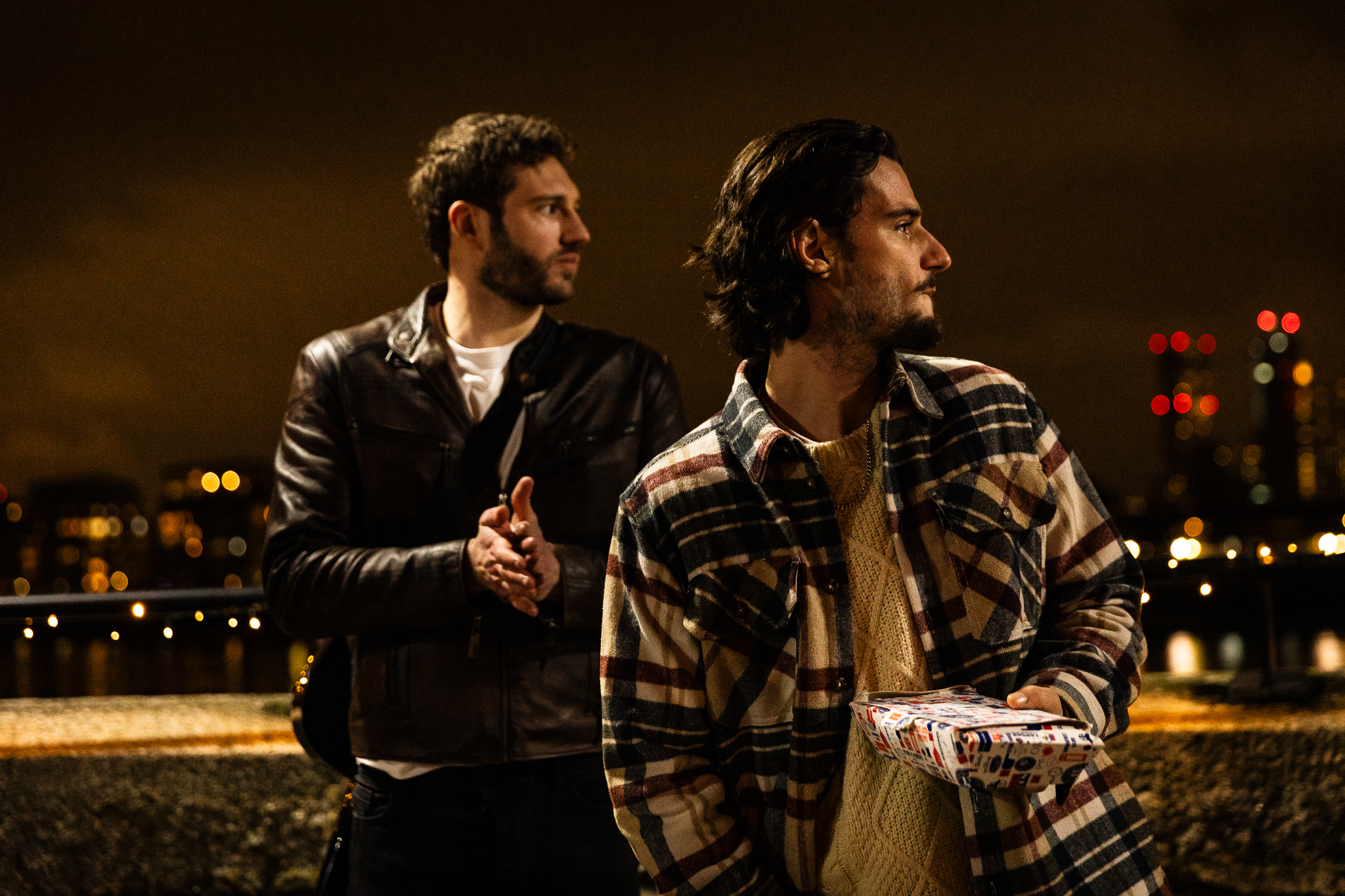
A Night Like This
In the tradition of Before Sunrise, Liam Calvert’s A Night Like This pairs suicidal Lukas (Jack Brett Anderson) a gay German actor with the seemingly straight entrepreneur Oliver (Alexander Lincoln). Both are teetering on the edge, for different reasons, when they meet and slowly bond, initially simply on a human level, but an unlikely romance starts to blossom. Both actors excel, even when the script meanders, as it often does.
The dashing Lincoln, who delivered a raw and potent turn in the gay rugby drama In From the Side in 2022, is especially strong here, diving into his role completely and keeping us interested throughout. His is a fascinating portrait of someone desperately needing to connect with another human. Jimmy Ericson also impresses as an initially homophobic, thieving teen who wises up.
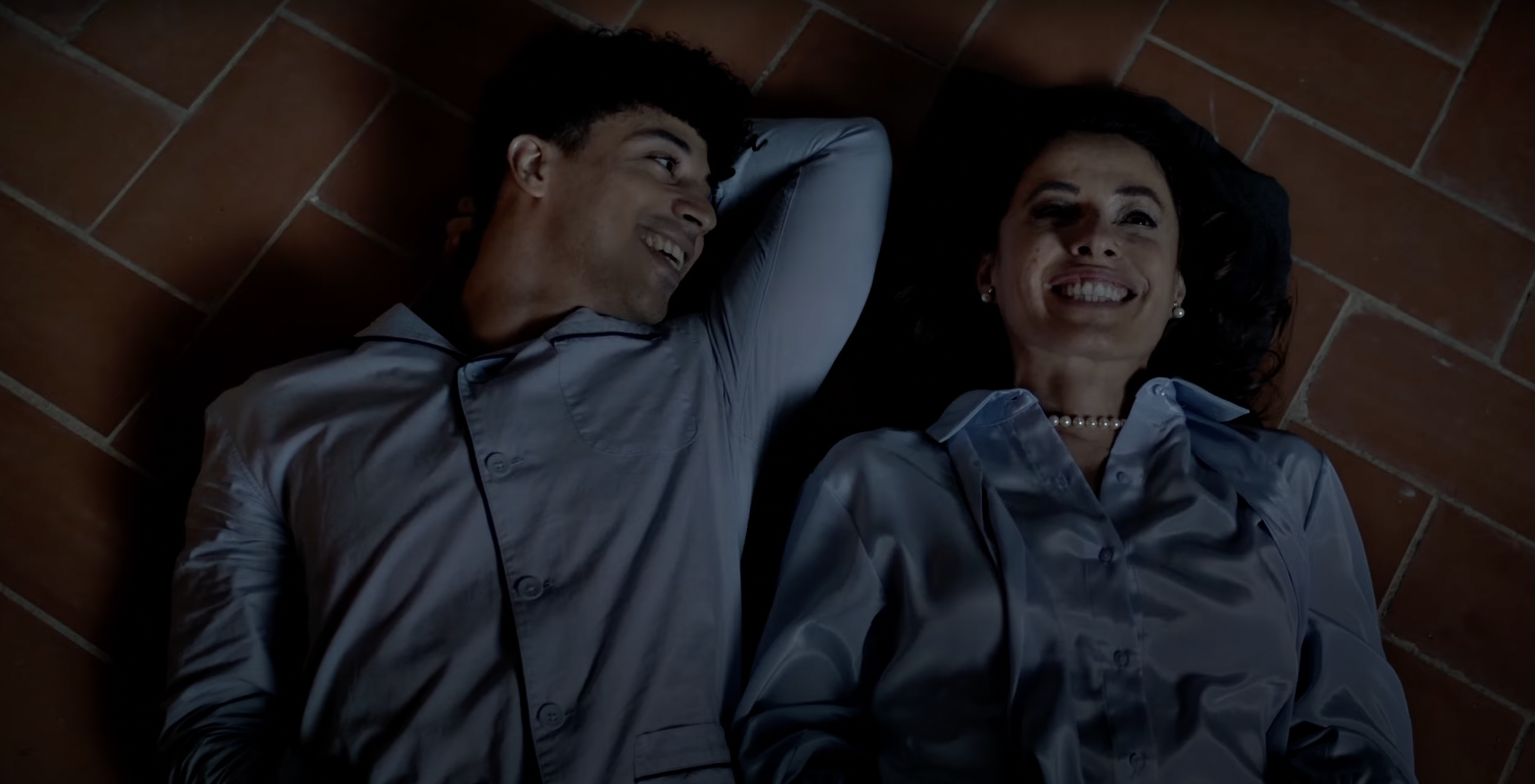
Blue For a Boy (Azul de Nino)
Writer-director-actor Raul Guardans wastes no time in his debut feature, Blue For a Boy (Azul de niño). In the very first few minutes we are introduced to a married woman inviting her husband’s mistress over, only to her surprise she turns out to be a he, and a sex worker to boot.
Natalia (Eva de Luis, who could be Penélope Cruz’s sister) has had it with her husband, Ernesto’s (Tony Corvillo) cheating and forces a confrontation with Daniel (Guardans), demanding to know all about the affair. But before she can make sense of any of it, they’re shocked to learn that Ernesto has suffered a stroke and is in hospital. Both rush to his side and the battle for Daniel’s love and attention begins.
Guardans shows great promise as a filmmaker as he navigates the complicated feelings of his characters, with special focus on Natalia’s emotional journey. There are hints of Almodóvar here with Guardans’ neat blend of melodrama and biting comedy. He also brings a bizarre touch to Daniel, starting with the often-ridiculous shorts he wears.
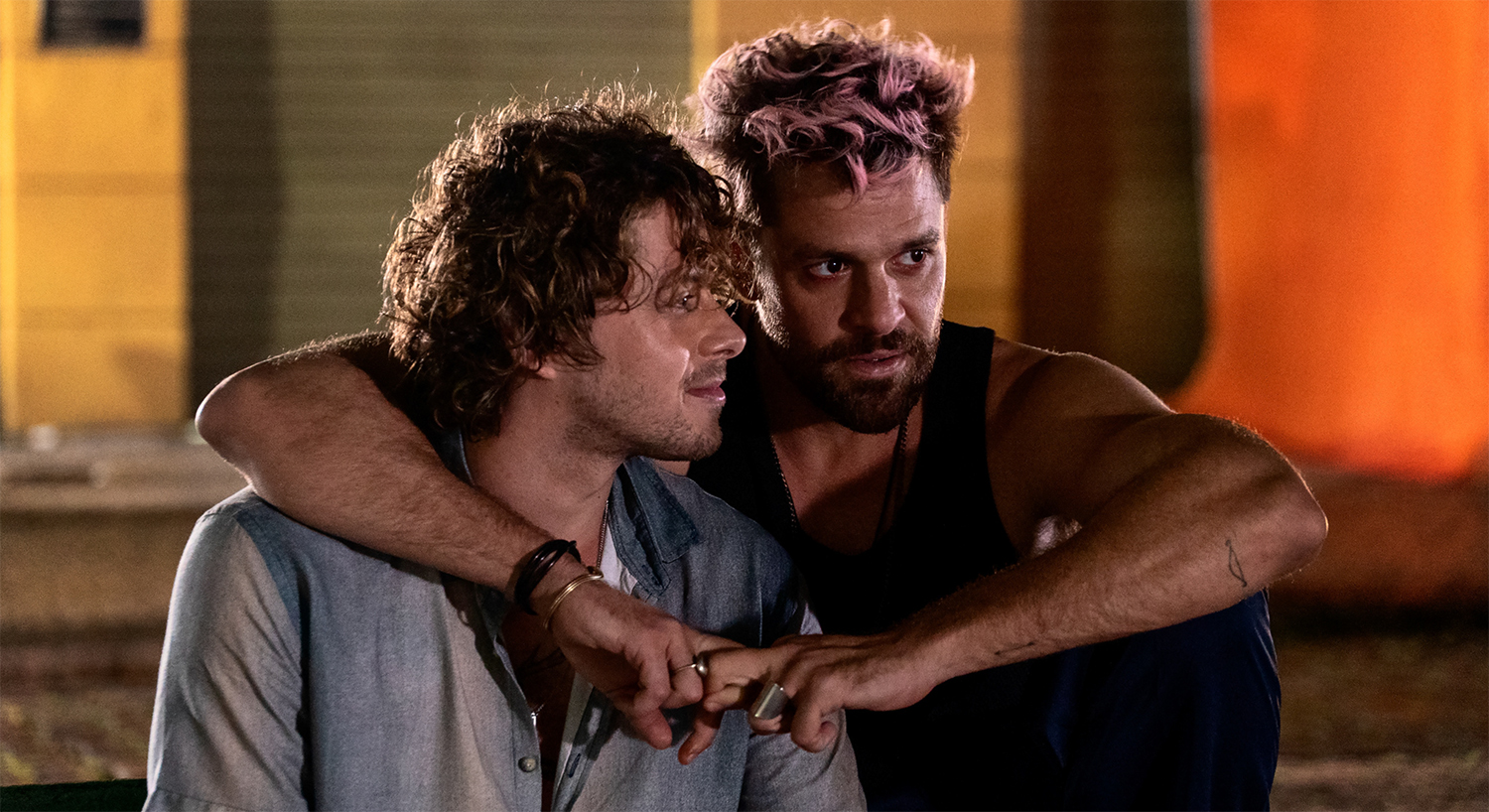
Streets of Gloria
Twenty-seven-year-old Gabriel (Caio Macedo) moves to Rio after losing his beloved grandmother and immediately becomes enamored with a bad-boy escort, Adriano (Alejandro Claveaux). After a wild romance, Adriano vanishes, and Gabriel goes on a quest to find him.
We’ve seen this story numerous times before, but what separates Streets of Gloria from other young-good-boy-meets-older-bad-boy narratives are the love scenes filled with passion and a consuming sexual energy. When Gabriel and Adriano kiss it’s as if they wish to devour one another. And director Felipe Sholl films these sequences so they’re ravenously beguiling to watch.
The film gets a wee too melodramatic—almost operatic —which the penultimate scene almost satirizes. But Macedo is such a captivating presence that we continue to care about Gabriel, even when he’s self-sabotaging.
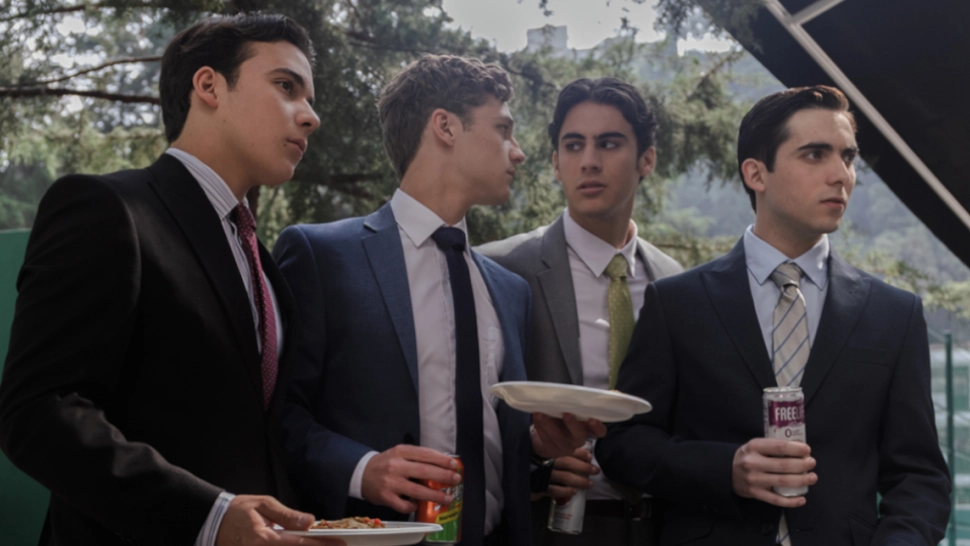
Fine Young Men
When Alejandro Andrade Pease’s Fine Young Men (Hombres Íntegros) begins we are introduced to Alf (Andrés Revo), an affluent teen who is back at his Catholic school in Mexico after a semester in the U.S. Alf’s parents are on the verge of divorce and he was much happier in the U.S., where he was free to be himself, exploring his same-sex attraction. He, almost instantly, becomes enamored with a younger classmate, Oliver (Joaquín Emanuel).
And just when you think you’re watching a film about two teens navigating the inherent homophobia in a repressed Catholic surrounding, the narrative completely shifts focus—it’s a twist you don’t necessarily see coming. Oh, sure the filmic atmosphere is ominous, and our protagonist is such a privileged mess that you sense something tragic is afoot. But once the story takes that dramatic turn, it feels like a total cop-out and something we’ve certainly seen before onscreen.
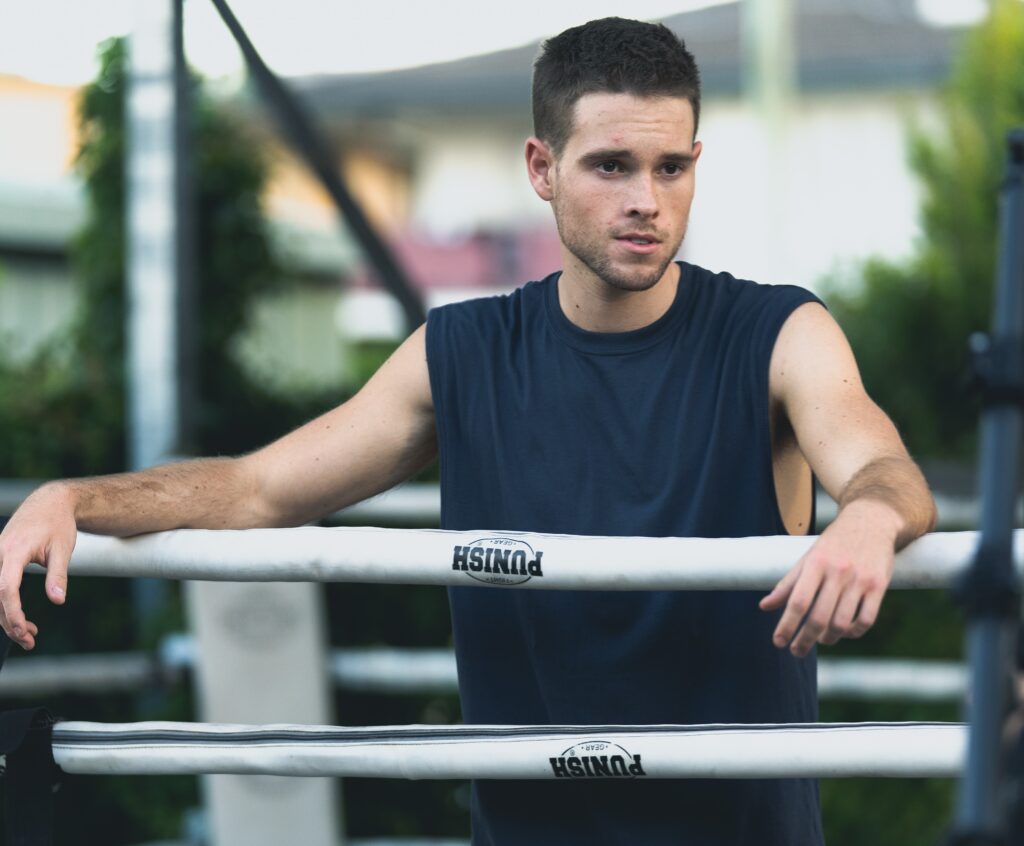
Heart of the Man
The gorgeous and gifted Australian actor Parker Little is the reason to see David Cook’s Heart of the Man, a queer-positive movie that can’t decide what it wants to be and is riddled with cliché dialogue.
Little plays Chris, an aspiring boxer who is just going through motions for his dad (played by Cook), a former champ himself forced to give it up. It turns out Chris would rather hang out with local theatre gays and bis while he, himself, explores his sexual orientation, instead of boxing.
There are many powerful moments in this mixed bag of a film. Most of those feature Chris figuring out who he is—although we never see him in a love scene with another dude. But the extraneous plot involving Chris’s dad, uncles and grandfather muddy the narrative. More attention should have been paid to Chris’s journey and the theatrical presentations and much less on Chris’s annoying family.







![‘Pirates! The Penzance Musical’ Breakout Star Nicholas Barasch Discusses Performing On The Tonys With Seven Stitches On His Face [VIDEO]](https://thecontending.com/wp-content/uploads/2025/06/Pirates0011r-120x86.jpg)

